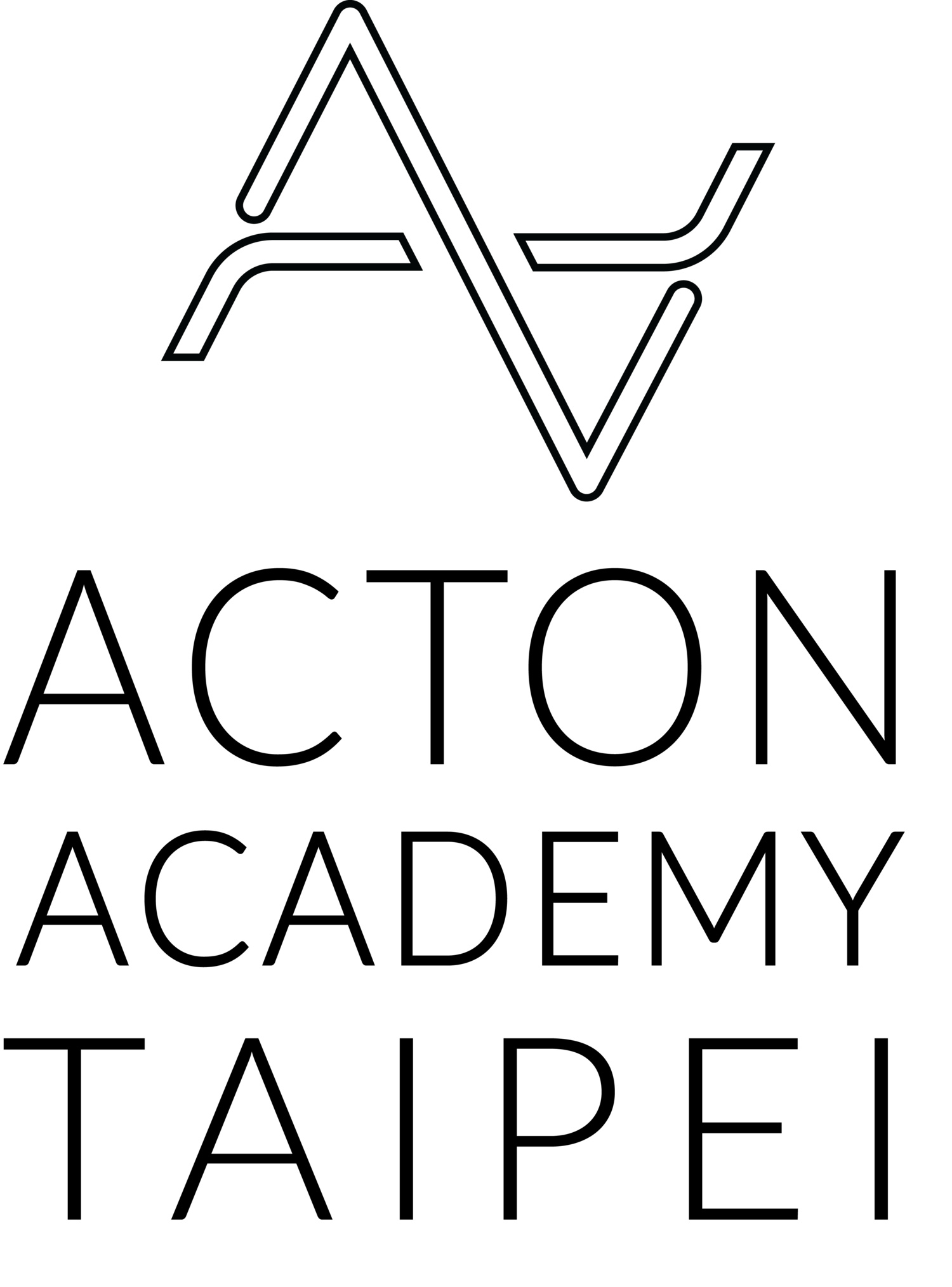Sending your child to Acton Academy Taipei means that they’ll be developing skills that can’t be easily quantified — things like self-management, self-governance, character, high-level communication skills, learning how to learn and opportunities to dive deeply into areas of your greatest passions and gifts.
Badges are a way to showcase this work and translate them into a traditional transcript, so your children, also known as Eagles here at Acton, can compete with their peers in traditional education environments.
Watch this quick 2-minute video to see what these Eagles feel badges mean to them.
So… what is a badge?
Think of it as a long-term effort focused on a particular discipline. Each badge is a process. There’s a large quantity of work reviewed several times by several people.
In traditional academic language, a badge is comparable to completing a course. Yet, instead of getting a grade, a badge is awarded only when excellence is achieved.
In Asian educational environments especially, you might be wanting to know, “How does a badge look on a transcript?”
We believe that it’s best explained in this Acton Academy Parents post written by the main Acton Academy co-founder, Laura Sandefer:
Here is a sample of our Transcript Acton.
Completion of a Badge = mastery = A. (High 360 scores would add a “+”.)
We are a competency-based learning environment. Mastery is the goal. Eagles work until they master their learning goals. Then, they progress to the next level. If a badge is not completed, the grade is “Incomplete.”
This is why that last sprint to compile their work after completing the requirements of a badge is so critical to the Eagles. It is the final step and is the proof of their hard work.
And this is where our parenting support comes in most fruitfully.
We especially like this part of the post, which encourages parent participation:
When all the required work for a badge is done, the badge is not yet achieved. It must be compiled and submitted. Ask your Eagles about whether or not they’ve scheduled time to compile this work for badge approval; then check in on their progress; ask if they are excited about the work or worried they missed something. Finally, celebrate the hard work of compiling the badge.
And, what about admissions to future schools?
Admissions officers may ask to see the work behind each letter grade. This is where Eagles will shine. (Personally, I hope Eagles will have the opportunity to show their full portfolios in an interview. Acton Eagles will knock the socks of savvy recruiters if they get the chance to sit down and talk with them. I’ve sat in on one of these interviews and it was pure bliss. By the end of the interview, they wanted to hire the Eagle for a teaching job rather than merely accept as a student.)
We have an entire collection of work from each Eagle for every badge achieved. This work is above and beyond what is required from traditional courses in middle schools and high schools across America. I am so impressed with the work the Eagles accomplish!
Another great question is: How do badges translate to traditional subject requirements?
Translating the work of a completed badge into traditional course content is necessary and is part of our curriculum planning. For example, a traditional school’s “English 101” in high school equates at Acton to 6 genre pieces, 4 deep books and 1 No Red Ink badge. The Acton curriculum is easily mapped to the core requirements of high school graduates for acceptance to competitive colleges.
Unfortunately, the most important accomplishments at Acton such as Apprenticeships, Leadership, Project Management and Quest Creation don’t translate easily under traditional academic subjects like Math, Science, History and English.
In order to move up, every Eagle at Acton is expected to earn a certain amount of badges. Each student must receive a certain 360 score by their peers on kindness and tough-mindedness. Every person must earn a certain average of weekly points. At Acton, we don’t believe that everyone must do this at the same pace or level. We know that it will take a unique amount of time and growth for each person to be able to hit these standards. But we believe that every child is a genius, and fully capable of doing the work in order to earn more freedom. That’s what Acton is all about.
More importantly, how does this all translate to the “real world”?
If we want to be prepared for our true Hero’s Journeys, we cannot be accustomed to being pampered. In the real world, if you want to work for Google, you have to be good enough! You have to work incredibly hard to meet the standard! If you want to be a professional athlete, it doesn’t matter how hard the journey is, results are what matter. No one will ask how hard you tried to score a touchdown, they will ask if you scored the touchdown.”


